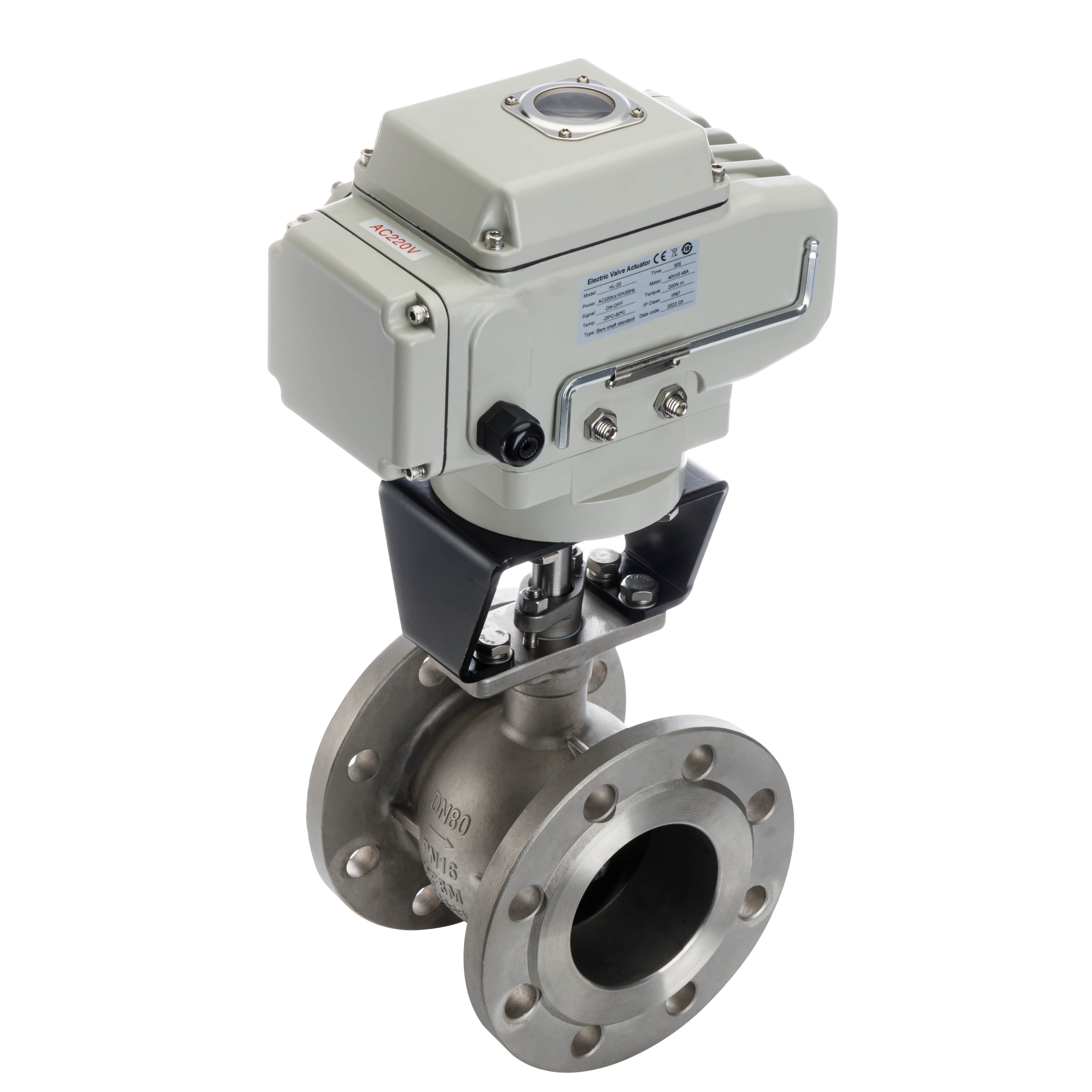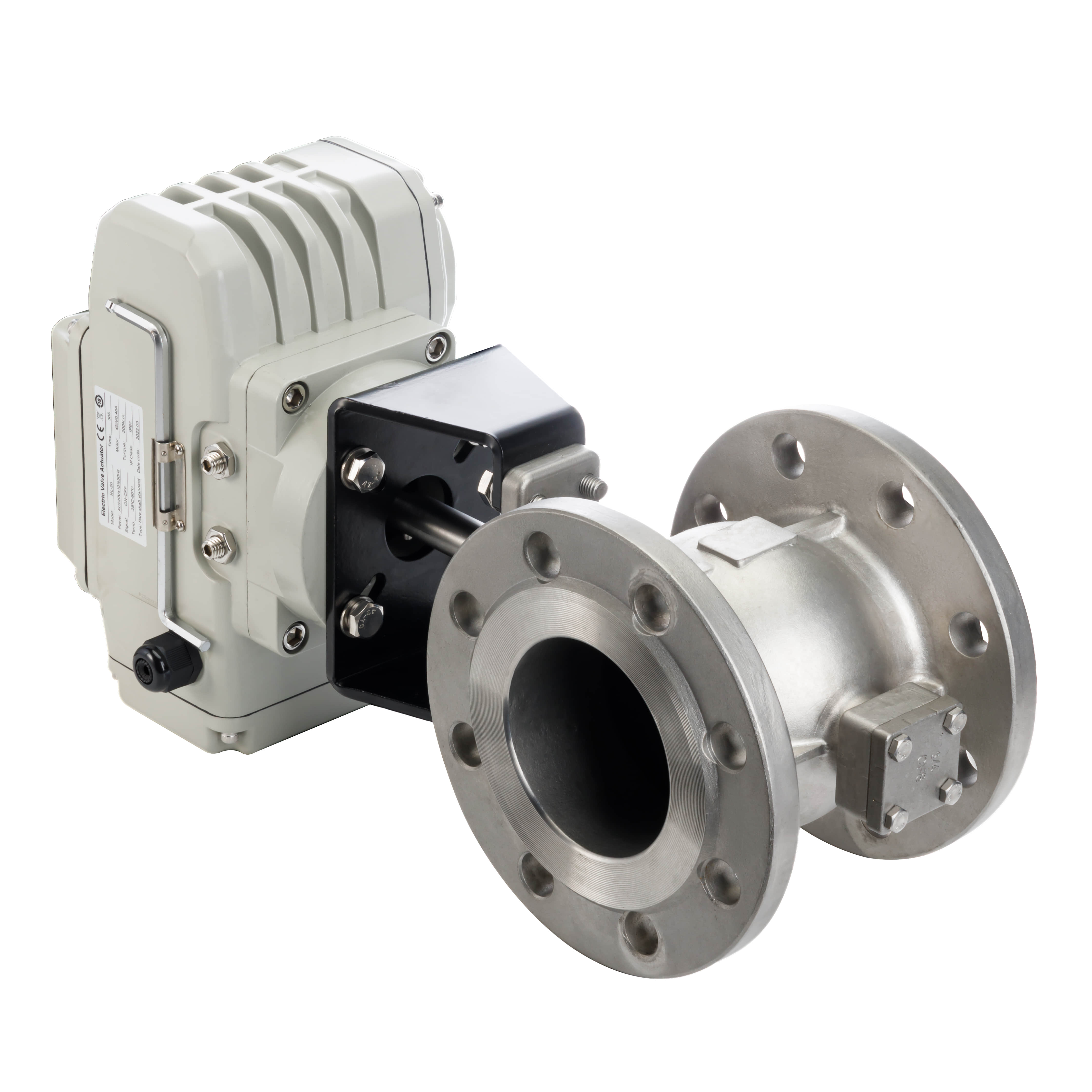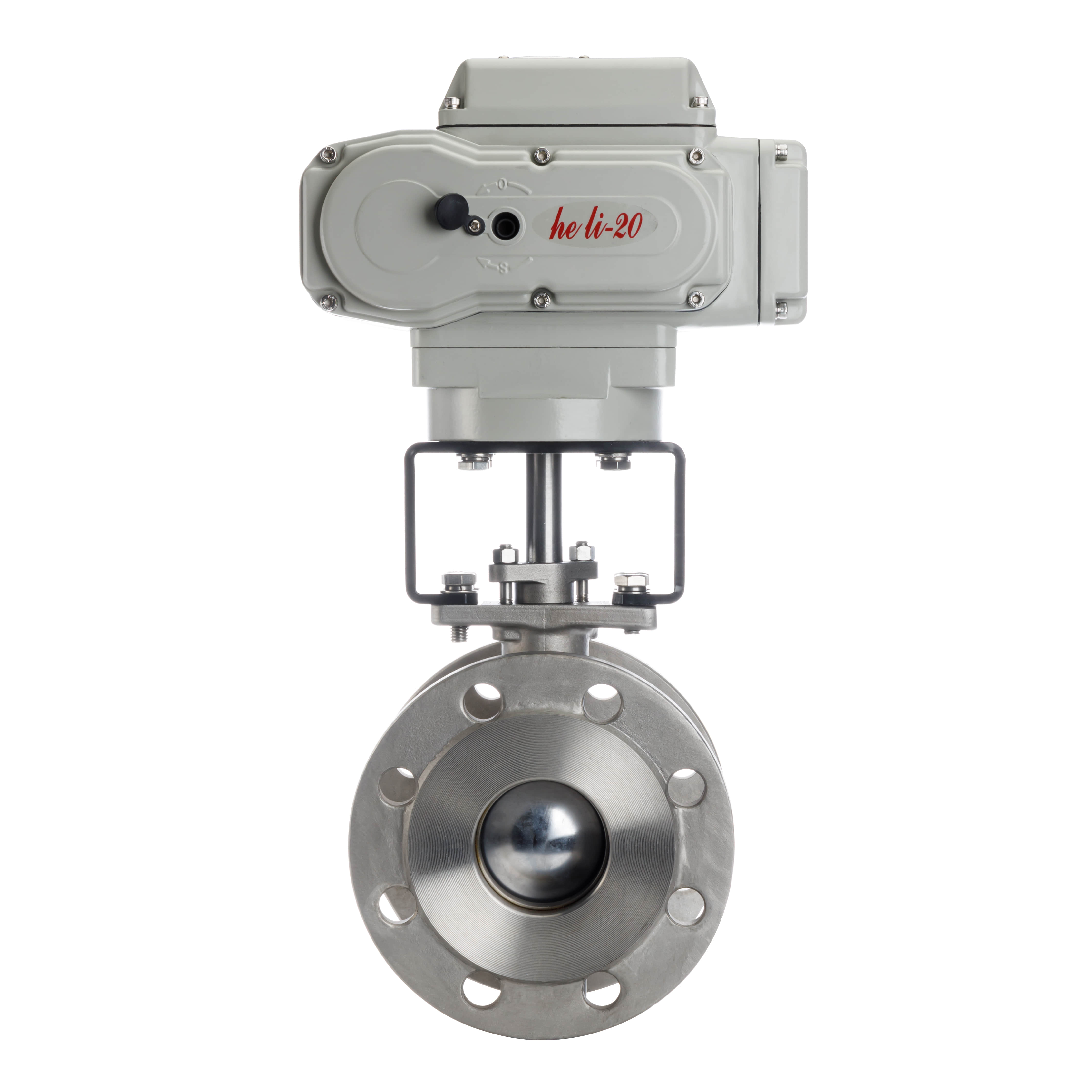understanding the electric v-ball valve: functionality and applications
Release time:2024-12-05 17:36:26
In modern industrial applications, controlling fluid flow efficiently is essential for optimizing processes and ensuring safety. One crucial component in achieving this is the Electric V-Ball Valve. This valve type combines the advantages of both electric actuation and a unique ball design, making it ideal for various applications across multiple industries. In this article, we will explore the functionality, benefits, and common applications of Electric V-Ball Valves.

What is an Electric V-Ball Valve?

An Electric V-Ball Valve is a type of control valve that utilizes a spherical ball with a V-shaped notch cut into it, which is rotated by an electric actuator. The V-notch design allows for better flow control compared to traditional ball valves, as it can effectively modulate flow rates while minimizing turbulence. The electric actuator provides precise control over the valve position, making it suitable for automated systems where remote operation is necessary. Key Components
The main components of an Electric V-Ball Valve include:




